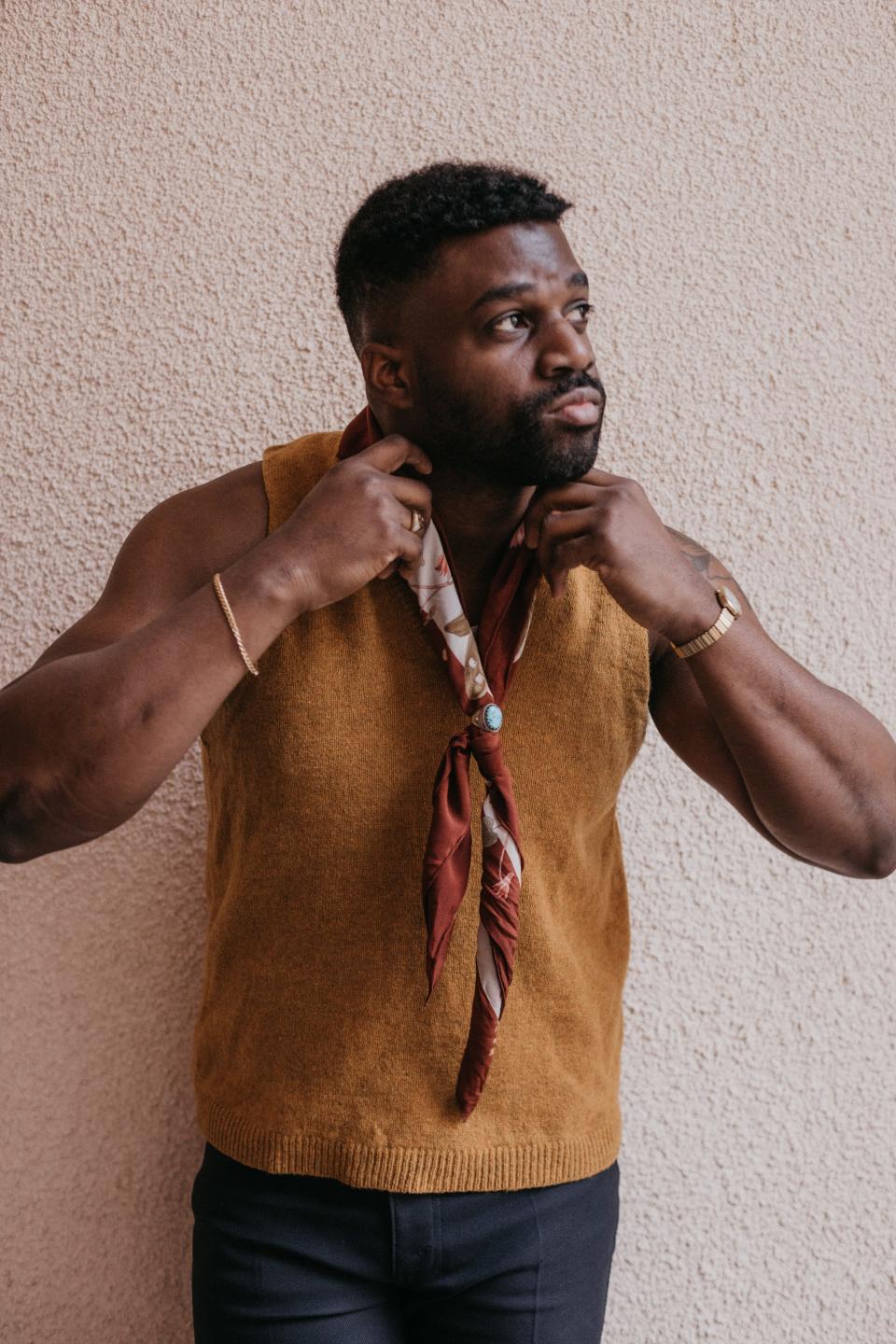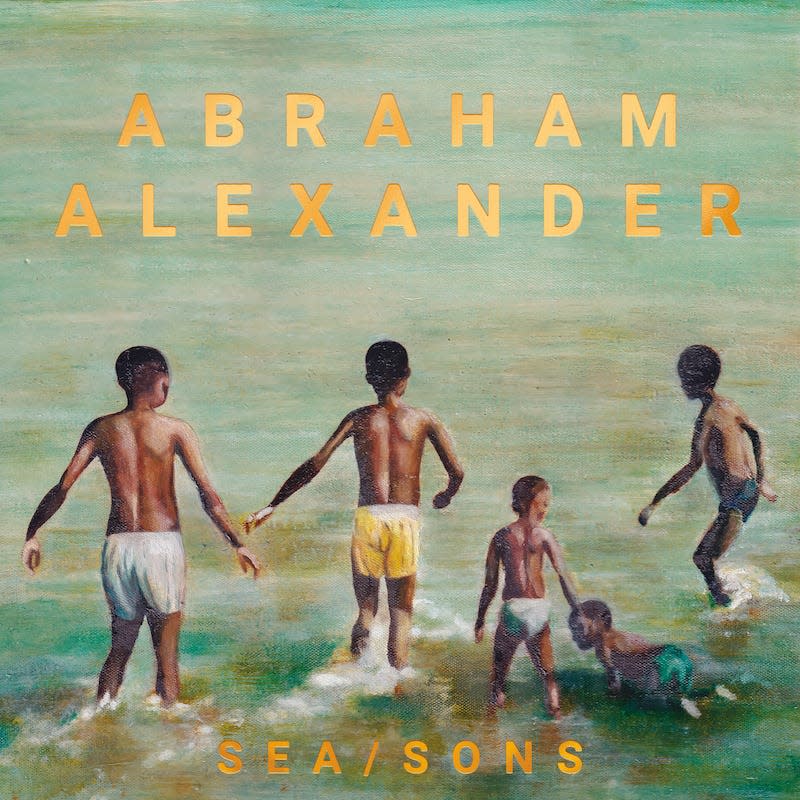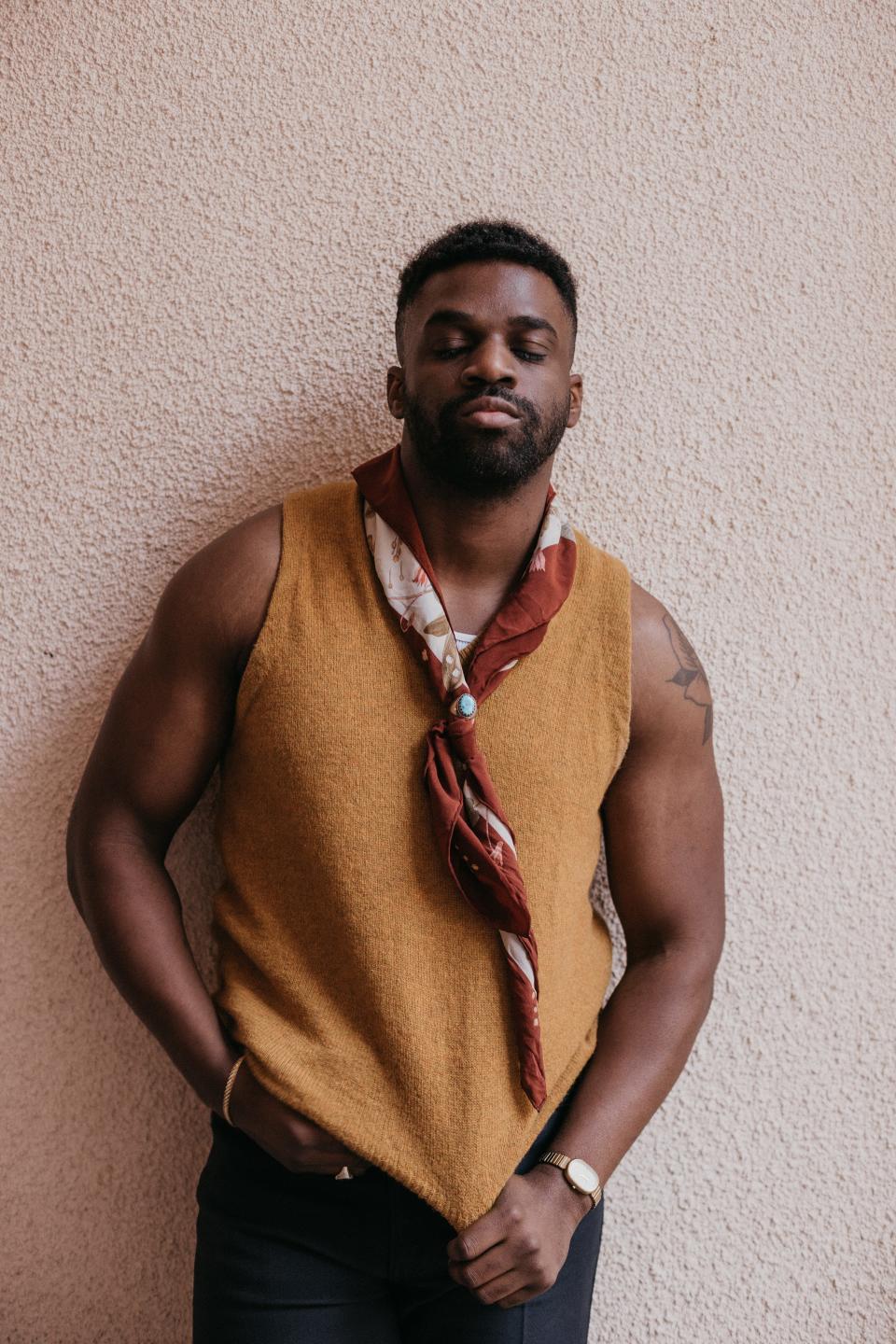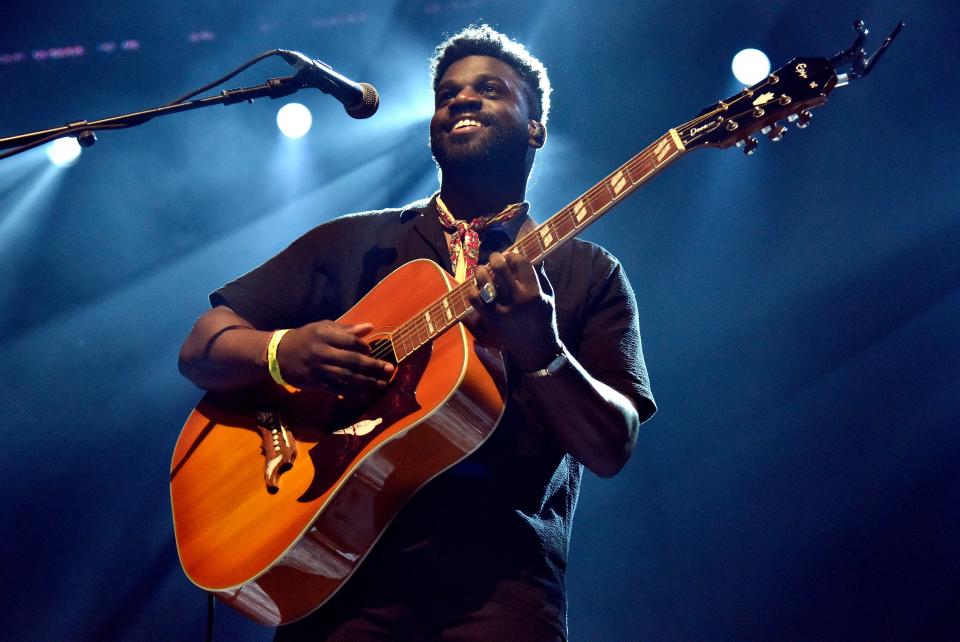Abraham Alexander's 'SEA/SONS' highlights his artistic vulnerability, developing stardom
In less than a decade, Abraham Alexander has emerged from an obscure existence as a Nigerian-Greek immigrant with a harrowing upbringing to a failed collegiate soccer star to excelling as the latest soulful, guitar-playing export from the 30-mile stretch separating Dallas and Fort Worth, Texas.
Alexander's "SEA/SONS" arrived April 14 as a meditative but moody reflection on mining peace from the intersection of heartbreak and sadness that has defined his life.
Alexander plays Nashville's Brooklyn Bowl on April 20, supporting Wilder Woods. Tickets start at $31 and are available via www.ticketweb.com/event/wilder-woods-the-fever-brooklyn-bowl-nashville-tickets/12762345.

"I'm in a period of peace, yes, but also one of growth," says Alexander to The Tennessean. "I've grieved so much and overcome so many of my circumstances. I'm now at a place where I'm willing to be authentically vulnerable about my life and open to my future."
He cites "(learning) that it's okay to gain confidence from rising again after crying, hurting and making mistakes — and being the best people we can be, always," as the most important lessons he learned during self-evolution that occurred while crafting "SEA/SONS."
Upon being aggrieved by neoliberal racial tensions in Greece at the turn of the 21st century, Alexander's family received a diversity visa, allowing their immigration to America.
When they arrived in Texas, the 11-year-old Abraham Ademola — a fan of David Beckham's rise as a global soccer-to-pop culture icon — excelled at the sport.
When he suffered a torn anterior cruciate ligament on the soccer field during his senior year of college, the biochemistry major was gifted a guitar by his ex-girlfriend to pass the time. His studies at Texas Wesleyan University did not yield a career in forensic science.
Instead, Alexander's adeptness with the instrument propelled him into a career that, in under a decade, has generated worldwide acclaim.

"Let the words of my mouth, and the meditation of my heart, be acceptable in thy sight," states Psalms 19:14. He uses the quote to summarize himself in a concise social media biography.
Phrase the quote as a question regarding how well his 11-track debut honors his honesty. The core motivations have kept him alive and motivated for the entirety of his 32 challenging and rewarding years, while the honesty empowers his creative process.
The guitar is not a musical instrument he enjoys years of formalized training with. Yet as an Afro-European American, Alexander views his perspective — in all facets, social, sonic and otherwise — as the greatest an artist can experience in services to others, which translates into a communal connection within his fanbase.

"People believing in how my vulnerability is (couched in) my dreams are also interested in musical discovery," Alexander adds, remarking on how he's emerged as a star on the rise in Dallas' now hotly-contested musical landscape.
"Being uplifting to myself, others and my creator is important. If my legacy were to die with me, then my vision was too small."
The album features gospel and soul legend Mavis Staples on "Déjà Vu" ("as a person of color, the ability to experience her historical talent is phenomenally surreal and tear-jerking") singing about the inequities of America's criminal justice system and Grammy-winning blues and rock favored fellow Texas Gary Clark, Jr. ("he's the GOAT") on the reflective, powerful "Stay."
The influences of Texans including Clark ("I emulated him playing guitar on YouTube to teach me how to play better") and Leon Bridges (he considers a chance encounter while working post-college as a bank teller as a career-evolving moment) as key to his evolution as a vibrant songwriter more concerned with the "nuanced flavor" of lyrical expression.
"Knee Deep" is the most profound moment of "SEA/SONS." Inspired by the last time he and his brothers played in the Aegean Sea near their Greek home before immigrating to America, it's a brilliant interplay between his empathy, musicality and perspective on reality.
"As an adult, I've realized that my mother's tears at that moment symbolized her courage when faced with trying to figure out what's comfortable versus what's best in that situation," says Alexander.
"We've got places to go / Knee Deep in the unknown," he sings. The ballad's tones are sad, his voice pensive. Their space along the emotional spectrum, though — because of the colors in the instrument and voice — is a shade brighter than the darkness of the words themselves.

Alexander is reflective on the totality of his life as it weighs in balance with his burgeoning career.
"I've searched my entire life for comfort in community," he said. "Being valued for who I am and what I can become — even outside of music, that matters most.
"I'm still learning who I am as an artist. So I'm more willing to be open than I am to being ready."
This article originally appeared on Nashville Tennessean: Abraham Alexander's 'SEA/SONS' highlights artistic vulnerability, developing stardom


